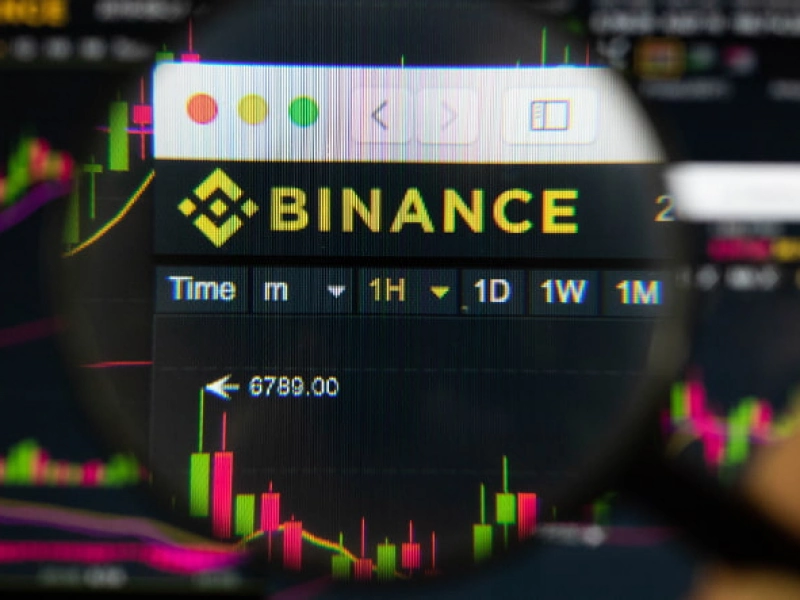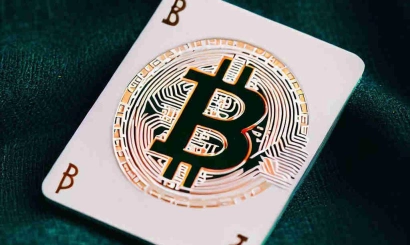U.S. vs. Binance. Who will benefit from the problems of the largest cryptocurrency exchange
U.S. exchange regulators are pressing charges against the largest cryptocurrency exchange and trying to disconnect it from the U.S. market. We tell you who can take advantage of the situation and what the risks are for Binance and its users
The Commodity Futures Trading Commission (CFTC) has filed a lawsuit against Binance and its executives. The regulator intends to completely strip the largest crypto exchange of the U.S. market and accuses it of facilitating illegal activities and trade manipulation.
The text of the indictment took 74 pages. Citing quotes from internal chats that the agency was able to access, officials accuse the exchange, it's head Changpeng Zhao and former chief compliance officer Samuel Lim of knowingly allowing Americans to trade cryptocurrency derivatives without a license, in flagrant violation of U.S. law. The CFTC also alleges that Binance, bypassing money laundering laws (AMLs) and know-your-customer (KYC) rules, deliberately helped large U.S. clients circumvent their own compliance procedures.
"Key Jurisdiction."
The CFTC is seeking a complete ban on Binance's operations in the U.S. and the return of all trading revenues and commissions illegally, according to the agency, derived from transactions by U.S. users. The CFTC estimates that in 2019 and 2020, between 18% and 20% of Binance's revenues came from "illegal" transactions by U.S. citizens, although no figures are provided for later periods. The exchange's management is believed to have turned a blind eye to the violations in order to maintain market share in its key jurisdiction.
The document alleges that the exchange offered U.S. citizens the to trade leveraged futures and options contracts on bitcoin, Ethereum, and Litecoin without registering with the CFTC as a futures commodities trader (FCM). The agency considers these assets to be commodities, which is at odds with the Securities and Exchange Commission (SEC), which considers most crypto assets to be securities.
"It's interesting that different agencies in the U.S. have different views on what's going on. This inconsistency in itself can create more doubt, but also lawyers can use some wording against others in their defense strategies," suggests Nikita Zuborev, senior analyst at Bestchange.ru. Even if a serious trial on some of the named charges begins, the investigation itself will require many months of work by lawyers from both sides of the conflict, the expert reasoned, answering a question about the possible consequences for Binance. In the short term, it is unlikely to have any effect on the sustainability of the exchange, believes Zuborev.
Binance.US, a separate division of the exchange for the US market, does not offer derivatives trading and is not mentioned in the complaint. Behind the platform is a separate legal entity, but Binance itself is not registered in the United States, and access to the exchange for Americans is formally prohibited. At the same time, the CFTC representatives are bringing charges against "global" Binance, arguing that the exchange gets under U.S. law, working with local clients.
The CFTC complaint says that Binance not only serviced American users but also deliberately did not take steps to block their accounts. Exchange executives also allegedly advised large institutional customers to move trading accounts to jurisdictions inaccessible to U.S. regulators and tacitly encouraged the use of VPNs to circumvent blockades. A Chicago-based Radix Trading representative confirmed to The Wall Street Journal that they had been trading on Binance for several years through offshore affiliates and a separate broker, with legal backing for any cryptocurrency transactions.
It's no secret. How to make money from insider information on cryptocurrency exchanges
The regulator also identified several other likely violations based on conversations from internal correspondence in work chats. In addition, the CFTC accuses Binance of managing about 300 internal trading accounts that "directly or indirectly belonged to Zhao" and failing to report them under its anti-insider trading policy. In a statement in response, Zhao, calling the allegations "an incomplete statement of facts," claims that Binance "does not manipulate the market under any circumstances" and that "affiliates' liquidity work" is under special scrutiny.
Who benefits from this
The lawsuit against Binance is not the first precedent for a confrontation between the CFTC and the crypto business. In October 2020, the agency brought charges against BitMEX and its three founders, Arthur Hayes, Benjamin Delo and Samuel Reed. The exchange actually invented a new format of cryptocurrency derivatives - perpetual futures contracts - and created an entire market around the instrument, whose popularity quickly led to its appearance on other trading platforms. The Commission also accused BitMEX of operating in the U.S. futures market without proper authorization and FCM status.
The case was closed when BitMEX agreed to pay a record $100 million fine for the crypto industry, forcibly shut down the accounts of all U.S. customers, and implement proper anti-money laundering measures. Hayes and Delo resigned from the company and pleaded guilty. They each paid an additional $10 million fine and were sentenced to two years probation.
This ended BitMEX's influence in the cryptocurrency derivatives market, which it controlled nearly 100 percent of until August 2019. However, her absence led to the rise of other platforms that now dominate this niche. These include Deribit, ByBit, and Binance, which regularly lists perpetual futures on most liquid crypto assets in demand.
According to Stephen Zheng, senior analyst at The Block Research, if Binance is forced to reduce its share of this market, ByBit as the next largest exchange in terms of trading volume in the futures market will benefit the most. Kraken and Coinbase will be able to pick up the remaining volumes, given that both have the necessary statuses and licenses to operate in the US.
When it comes to the global crypto market, Binance's role as a player in the United States is not as significant as in other states, said cryptocurrency market analyst Victor Pershikov. Binance.US has been trying to increase its share and its weight through the purchase of troubled assets from companies that left the market in 2022, but U.S. authorities have prevented the exchange from doing so.
Coinbase, Gemini, eToro, Kraken, and some other exchanges have a much wider presence in the U.S. market than Binance and are ahead of its American division in terms of trading volumes. In this regard, the departure of Binance from the North American market will not create difficulties for American investors who have alternative projects, which raise fewer questions from regulators, the expert said.
What are the risks
Binance has been under the scrutiny of U.S. regulators for quite some time. Major business media outlets have released several investigations into the exchange's internal business structure, accusing it of various manipulations or non-transparent practices. The day after the CFTC lawsuit, the British Financial Times spoke about Binance's longstanding connection with China, citing internal documents which were obtained by journalists. A few days before that, the exchange experienced a technical glitch that caused it to stop trading for four hours. The cumulative negative events inevitably affected the traders' actions - in less than a week $2.2 billion worth of assets were withdrawn from the exchange.
According to Pershikov, further development of this case can "increase customer nervousness," which will lead to a continued outflow of assets from Binance. The erosion of confidence could create problems for the project and negatively affect the market's capitalization. However, the emerging trend of "self-custody" after the collapse of the exchange FTX suggests that the cryptocurrency market can survive the potential collapse of Binance, and despite the local fall in the prices of digital assets, it is unlikely to lead to the collapse of the industry.
Zuborev speculates that in the context of a CFTC lawsuit, it is disconcerting to have access to the correspondence of exchange employees. In his opinion, this may be an indirect sign of authorized "at the highest level" surveillance, which may be due to investigations into very serious charges, not excluding even aiding and abetting illegal or terrorist activities. "Such charges could carry more serious risks in the future," the analyst notes. - But thanks to the fairly distributed structure of the exchange, we do not see any real risks of a complete halt in trading or paralyzing difficulties.
The decision to withdraw assets from centralized exchanges depends on an investor's individual needs and strategy, it is worth remembering that the withdrawal of tokens to non-custodial wallets itself can seriously reduce the risks of cryptocurrency storage, explains Zuborev, answering the question of whether to withdraw funds from Binance. In case of exchanges "involved in politicized scandals", expediency of such funds transfers increases by an order of magnitude, adds the analyst.
- Gucci formed a partnership with the creators of the NFT Bored Ape Yacht Club series
- "Waiting for Powell's speech." What will happen to bitcoin after the Fed meeting
- Stacking platform tokens rose in price after Ethereum announcement of the update date
- Investing: Five altcoins with the highest growth potential
- DeFi project SafeMoon lost $9 million in hacks
- Reuters: Animoca Brands has lowered fundraising for Web3 to $800 million
- MetaMask denied rumors of a March 31 Airdrop




_410x245_00e.webp)


